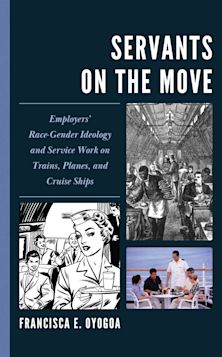- Home
- ACADEMIC
- Politics & International Relations
- Politics - Other
- Money Matters
Money Matters
Consequences of Campaign Finance Reform in House Elections
- Textbook
Money Matters
Consequences of Campaign Finance Reform in House Elections
- Textbook
For information on how we process your data, read our Privacy Policy
Thank you. We will email you when this book is available to order
Buy from Bloomsbury eTextBooks
You are now leaving the Bloomsbury Publishing website. Your eBook purchase will be with our partner https://www.vitalsource.com.
Your credit card statement will show this purchase originating from VitalSource Technologies. They will also provide any technical assistance you might require.
You must sign in to add this item to your wishlist. Please sign in or create an account
Description
Methods of campaign financing have been controversial since George Washington first ran for office, and debates over campaign finance reform have raged just as long. Contemporary critics of reform often contend that it would decrease electoral competition, voter turnout, and the amount of information voters receive about candidates. Money Matters subjects these criticisms to careful, systemic analysis-using simulations, aggregate vote analyses, and individual-level data analyses based on House elections-and concludes that reform, with modest public subsidies and spending limits, would enhance rather than diminish the U.S. system of democratic governance. This timely book helps bridge the gap between quantitative academic research and applied progressive reform efforts. It will be of interest to scholars and students of political parties, the legislative process, campaigns and elections, political institutions, public policy, and political behavior and methodology.
Table of Contents
Chapter 2 A Brief History of Campaign Finance and Campaign Finance Reform
Chapter 3 Excessive Spending, Candidate Viability, and Free Speech
Chapter 4 Electoral Competition and Campaign Finance Reform
Chapter 5 The Question of Voter Turnout, Part I
Chapter 6 The Question of Voter Turnout, Part II
Chapter 7 Democracy and Citizen Involvement: Campaign Spending and Cognitive Engagement
Chapter 8 FECA's Loopholes: Soft Money, Independent Expenditures, and Issue Advocacy Campaigns
Chapter 9 Improving the Electoral Process through Campaign Finance Reform
Product details
| Published | 15 Apr 1999 |
|---|---|
| Format | Ebook (Epub & Mobi) |
| Edition | 1st |
| Extent | 228 |
| ISBN | 9781461639831 |
| Imprint | Rowman & Littlefield Publishers |
| Publisher | Bloomsbury Publishing |
About the contributors
Reviews
-
Goidel, Gross, and Shields provide a valuable service to those interested in campaign finance reform in bringing state-of-the-art empirical analysis to proposed reforms. Proponents of reform will find the book a valuable resource. Students in courses on elections and Congress will appreciate the well-organized discussions of reform's history, FECA loopholes, reform alternatives, and pro and con arguments.
Douglas Rose, Tulane University, Political Science Quarterly
-
Their analysis of three approaches to campaign finance reform - do little, moderate, and comprehensive - argues for a comprehensive approach with an emphasis on full public financing of congressional elections.
R. A. Strickland, Appalachian State University, Social and Behavioral Sciences
-
The book has something for every reader. For the political science novice it provides a thorough look at the role of money in politics and at various reform proposals. For the advanced student or professional it provides a provocative argument for comprehensive reform that challenges many of the conclusions in the contemporary literature.
Bruce F. Nesmith, Coe College, Perspective On Political Science
-
Money Matters is well written, current, fact filled, and, at times, provocative. The scholarship is sound and well grounded in the literature, which is given an extensive review. The authors challenge many of the assumptions that have come to surround proposals for campaign finance reform, especially those proposals designed to reduce expenditures. This is a timely book on a timely topic, unlikely to be rendered passé.
Charles S. Bullock III, University of Georgia



































